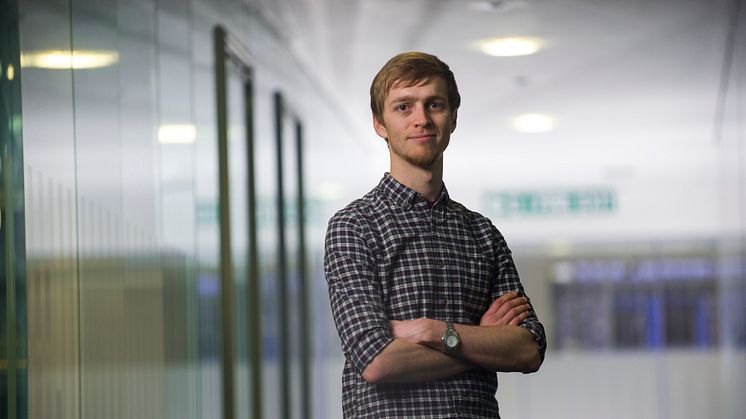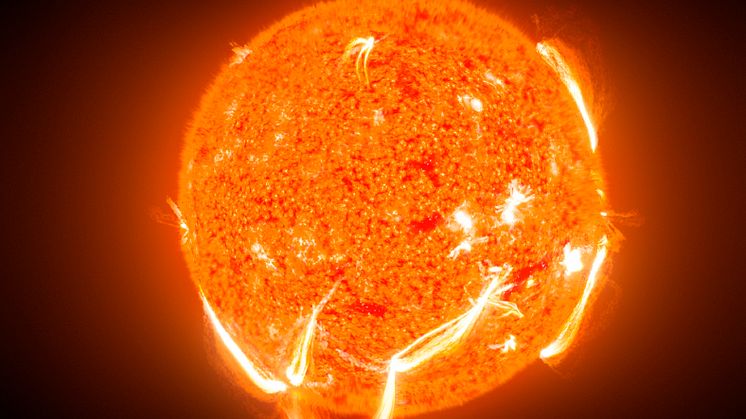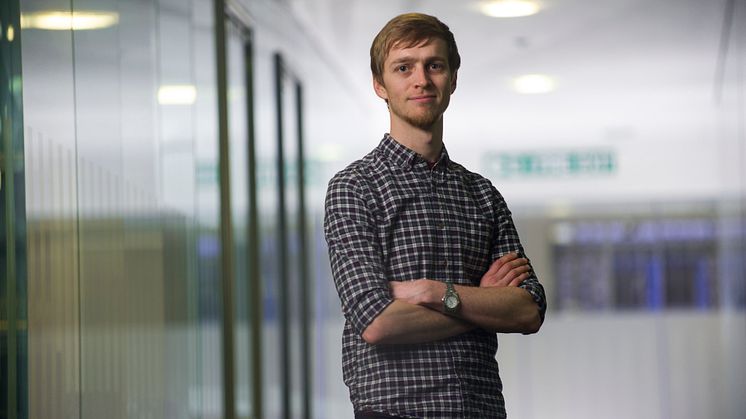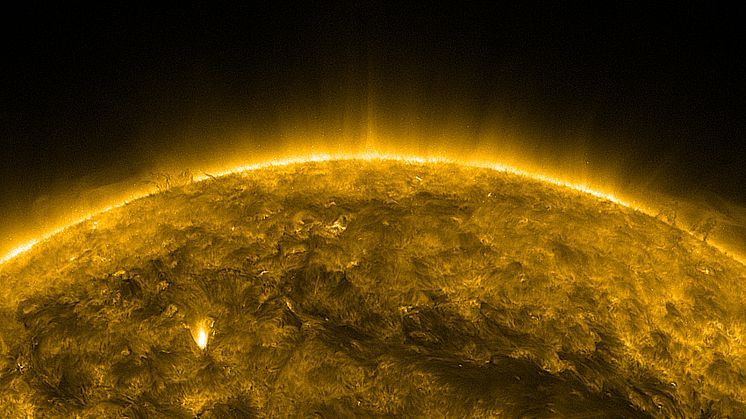
Press release -
‘Star’ academic awarded by Royal Astronomers
A Northumbria research fellow has been hailed as ‘a scientist of exceptional talent and promise’ after winning the Royal Astronomical Society’s Winton Capital prize.
Dr Richard Morton, Leverhulme Trust Early Career Research Fellow in the Department of Mathematics and Information Sciences, specialises in solar physics research aimed at understanding why the Sun’s outer edge is much hotter than its surface.
In its citation for Richard, The Royal Astronomical Society described him as having already made: “significant contributions to magnetohydrodynamic wave theory and magneto-seismology of the Sun. He has led a number of original studies and has been a tireless and effective communicator of his research to the general public.”
Funded by the Winton Capital Investment House in recognition of the skills provided to the financial services sector by trained astronomers and geophysicists, the Winton Capital awards are for research by a post-doctoral Fellow in a UK institution in astronomy or geophysics whose career has shown the most promising development.
''I am delighted and very grateful that my peers have recognised my research with this award,” Richard said. “But I wouldn’t have been able to achieve it without the support of my fiancée and colleagues both at Northumbria and around the UK.”
After spending his entire academic career, from undergraduate to post-doctoral research, at Sheffield University, Richard joined Northumbria in 2012 to further develop his career and become an established independent researcher. Since arriving at Northumbria, Richard has applied for grants and received an independent Leverhulme Trust fellowship.
“It was an amazing opportunity to come here,” said Richard. “Northumbria has provided fantastic support since I joined, which has allowed me to develop as an independent early career researcher. My career really has changed a lot since I arrived. I’m now collaborating with colleagues at institutions including NASA, America’s National Center for Atmospheric Research, UCL, St Andrews and Queens University Belfast and also mentoring a PhD student who is helping me with my own research projects.”
Professor Glen McHale, Executive Dean for Engineering and Environment, said: “It is extremely gratifying to see Richard’s highly promising career recognised with this award. It further demonstrates the University’s investment in early career researchers to drive excellence and ensure our students learn from the best and brightest in their chosen fields.” Northumbria recently launched its Think Physics project to inspire more young people, especially girls and under-represented groups to engage with Science, Technology, Engineering and Mathematics (STEM) from Early Years through to Higher Education and into their careers.
The University also recently announced an investment of £6.7 million in STEM facilities, co-funded by the Higher Education Funding Council for England (HEFCE), to help drive world-class research and teaching across STEM disciplines, and an increased flow of highly-employable graduates into industry.
The University provides undergraduate and postgraduate courses in Physics and Physics with Astrophysics. For more information go to: https://www.northumbria.ac.uk/physics
Categories
Northumbria is a research-rich, business-focussed, professional university with a global reputation for academic excellence. To find out more about our courses go towww.northumbria.ac.uk
If you have a media enquiry please contact our Media and Communications team at media.communications@northumbria.ac.uk or call 0191 227 4571.















